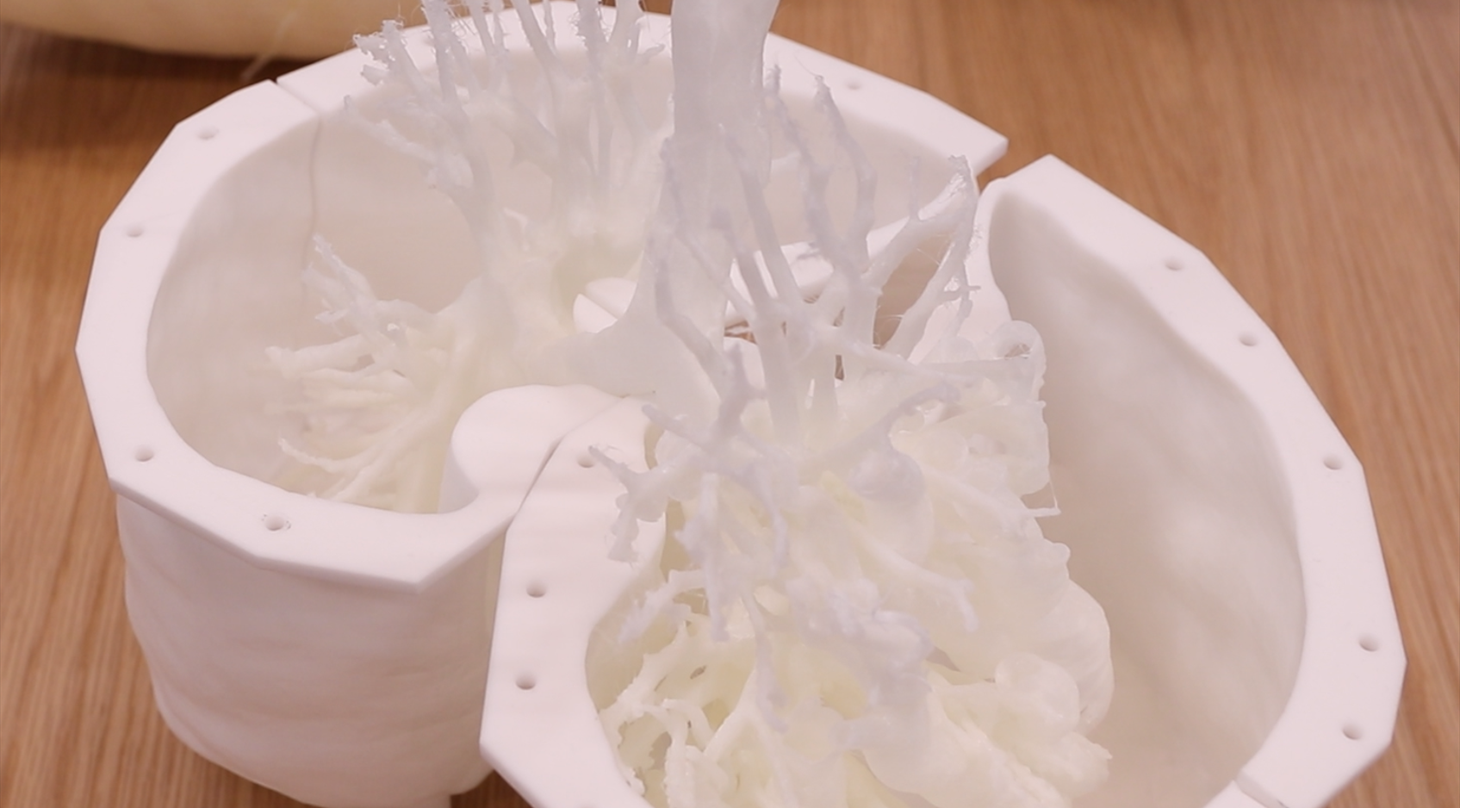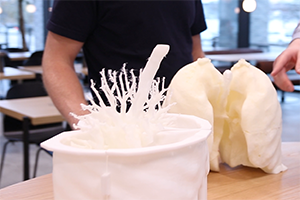
A doll will make it easier to diagnose cancer - with the help of 3D printing
A training doll will make it easier and more efficient for radiologists to perform tissue biopsies in connection with cancer diagnosis. The startup MultiBiopsy received assistance from the 3D printing specialists at the Danish Technological Institute to further develop their prototype through insights into materials and mechanical functionalities in a MADE project.
A cancer diagnosis often depends on tissue samples, but especially in lung biopsies, challenges arise in the field.
One of these challenges is the high complication rate when new radiologists perform their first biopsies on patients without thorough training equipment.
Therefore, MultiBiopsy wanted to develop a training doll that can help radiologists with training and thereby increase their level of experience before performing the procedure on patients.
The MADE Demonstration Project allowed us to sit down with a knowledgeable provider at the Danish Technological Institute, who could help us with the specific problems we had and help us acquire the knowledge we lacked
- Anton Esbjerg, MultiBiopsy
The startup already had a prototype with a training doll ready, but challenges with materials and functionality prevented them from reaching a final product that could be used in hospitals.
The startup experienced, for example, that some materials did not behave correctly during CT scans, while others lacked mechanical functionalities. Therefore, they chose to engage in a MADE Demonstration Project, where they received help from the Danish Technological Institute.
Hear more about the project in the video below.
From idea to usable product
During the project, MultiBiopsy found many of the answers they were looking for. They discovered which technology to use to produce the bronchial blood vessel tree, which is part of the lungs developed in their training model, and these lungs have also received a new mold.
They also came up with a new production method that allows them to adjust the contrast level of the materials to provide a more accurate image during CT scans.
Training dolls of the future
The next step for the company will be to continue working on the production of molds. They have determined how they would like to cast the bones included in their anatomical model, but they still need to produce the mold. At the same time, they want to find the right material for the muscle and fat tissue in the training doll and find a way to produce the dolls efficiently and without high costs.
 Despite having several items on the checklist to solve, MultiBiopsy views the project as a whole with great enthusiasm.
Despite having several items on the checklist to solve, MultiBiopsy views the project as a whole with great enthusiasm.
- I would recommend a MADE Demonstration Project to any company facing a specific problem that they cannot solve internally. Where they simply lack experience in precisely that problem, or if there is a company that wants to acquire new knowledge about a specific domain, then working with an experienced knowledge provider will also add great value to the company, says Anton Esbjerg, CTO and Co-Founder at MultiBiopsy.
About MADE demonstration projects
With a MADE Demonstrations Project, a small or medium-sized company can receive up to 100,000 DKK in support to solve a specific challenge in the company or test a new technology in production.
By being connected with the Danish Technological Institute, FORCE Technology, Alexandra Institute, or DAMRC, one gains access to the technologies, knowledge, and expertise necessary to address the specific challenge in the company. This can be within materials or production.
MADE demonstration projects are co-financed by the European Regional Development Fund and the Danish Executive Board for Business Development and Growth. Would you like to hear more about the opportunities to test and demonstrate new solutions in MADE? Please reach out to MADE - they cover all of Production Denmark.
This article is originally published by MADE
